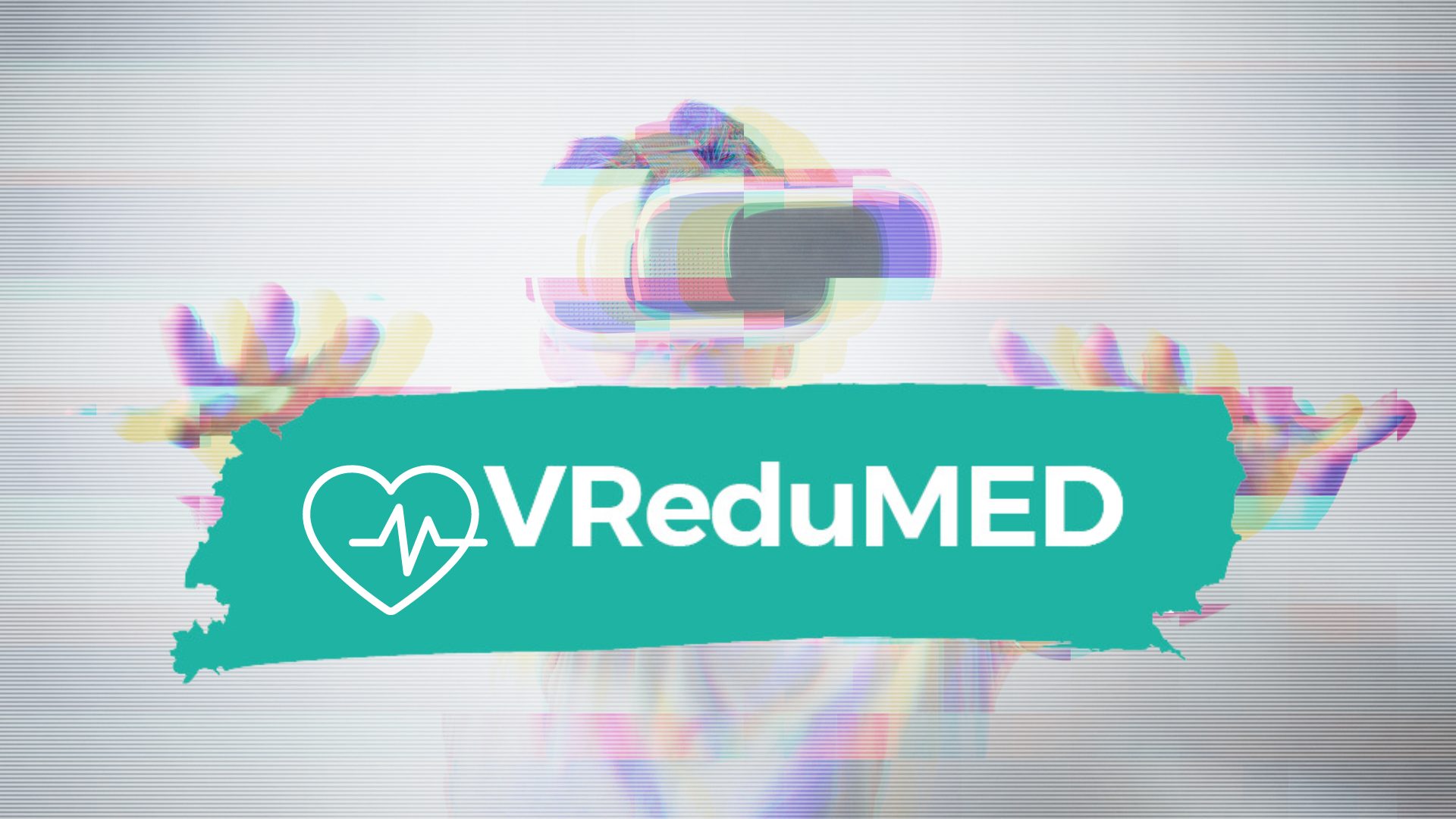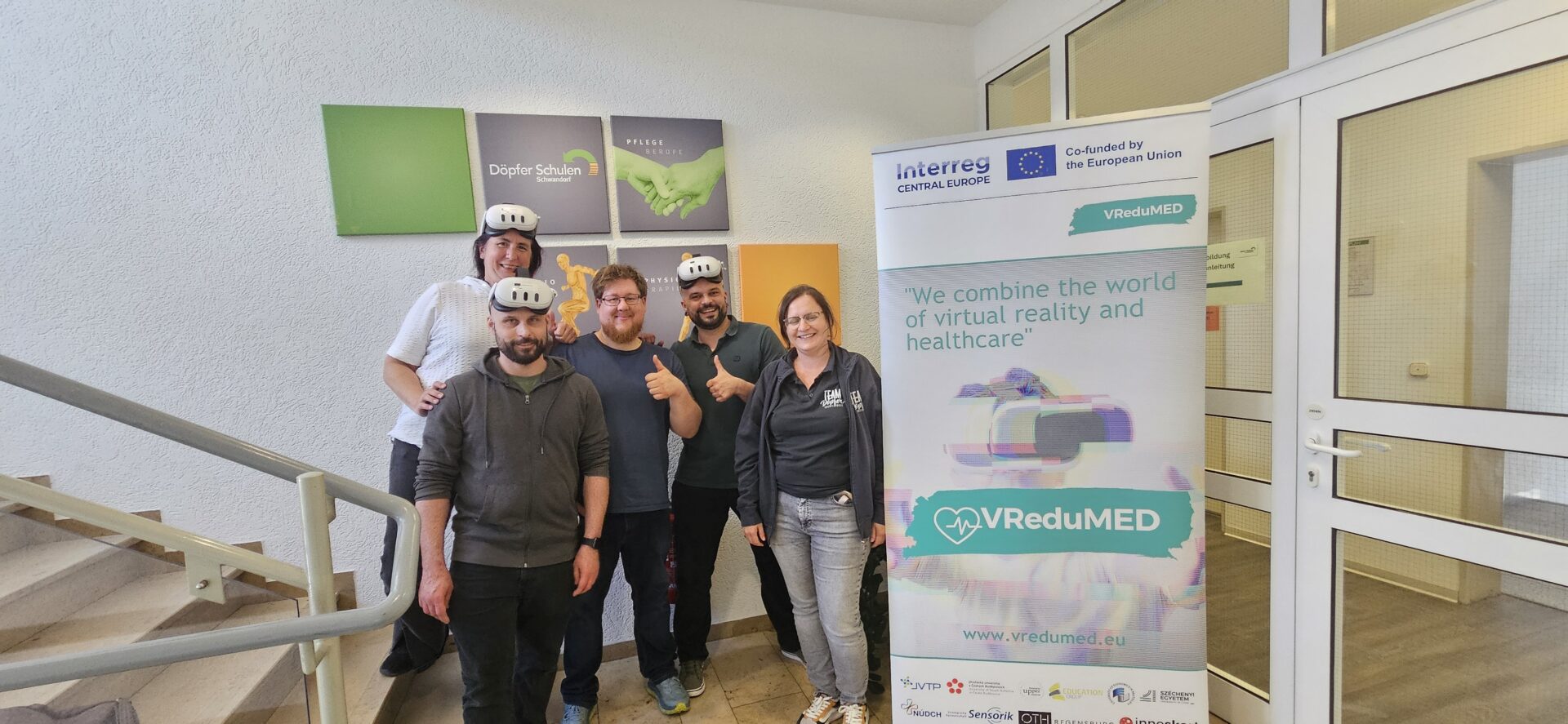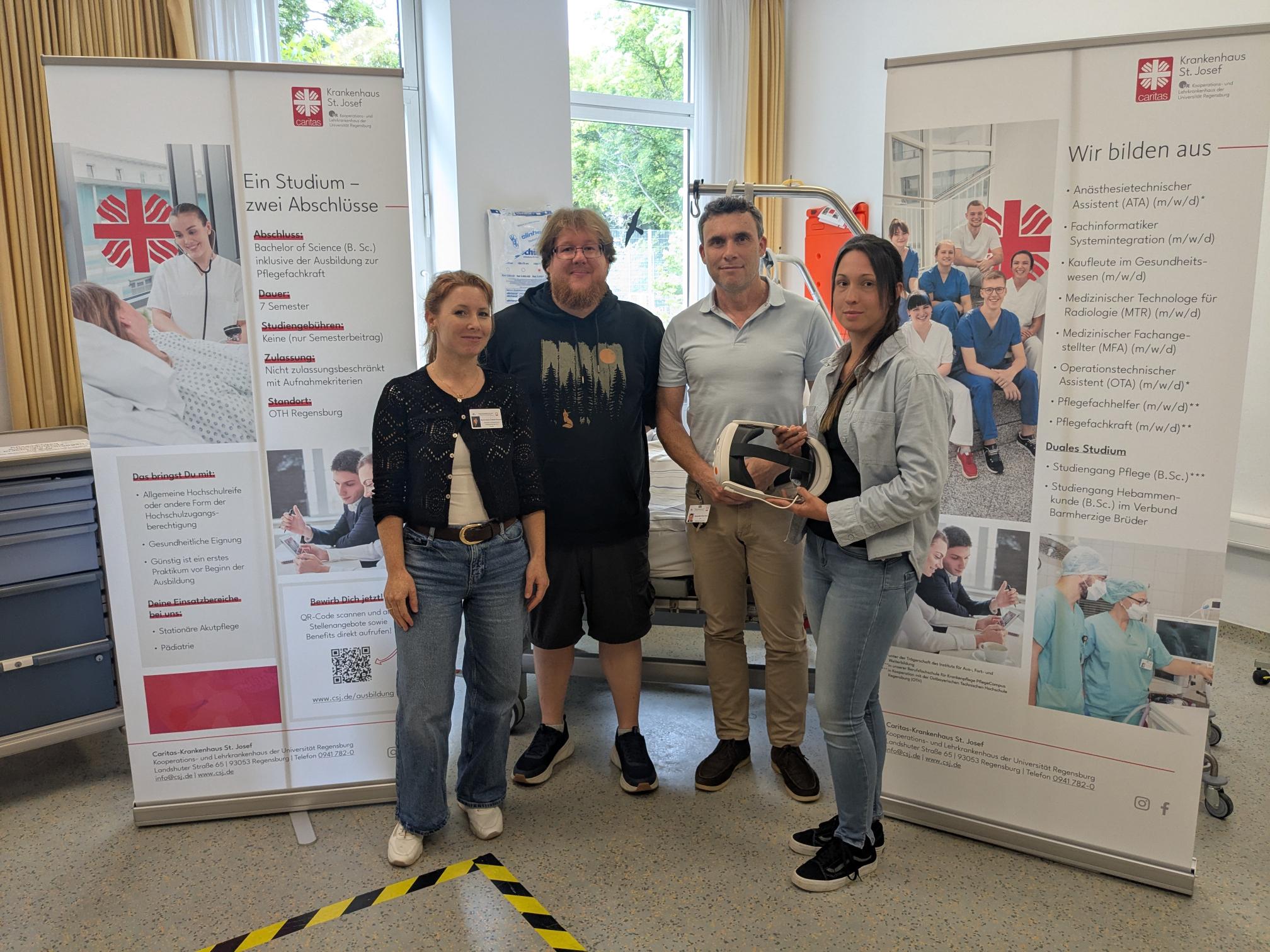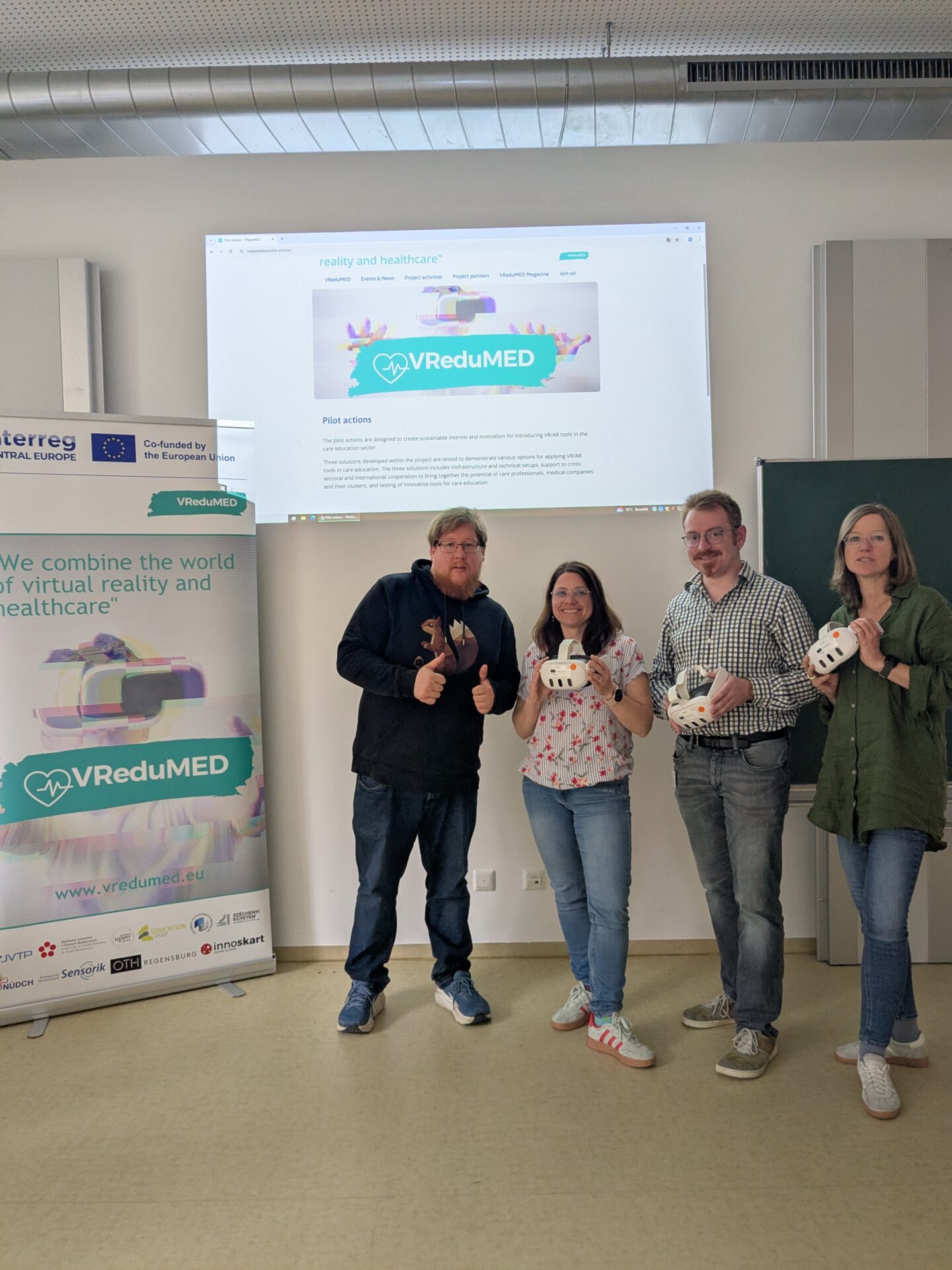
With the launch of our pilot phase as part of the VReduMED project, we are taking a decisive step toward future-proof nursing education: Our mobile VR lab is on tour, bringing immersive learning technologies directly into the classrooms of nursing schools. The aim is not only to showcase innovative technologies, but also to integrate them into everyday training in a sustainable, practical, free, and participatory way.
VR up close – rental, training, and test phase
The pilot phase focuses on testing our VR equipment by nursing schools that are members of the Care Education Forum. Over a period of about six weeks, they will receive free access to modern VR hardware and carefully selected educational software. The prerequisite is either participation in our specially developed “Train-the-Trainer” workshop or an individual introduction by our project team on the day of the loan.
“This offer includes not only technology and software, but also ongoing support for teachers: We are available as contact persons throughout the entire test period and provide assistance with questions regarding application, didactic integration, or technical challenges. This low-threshold approach has proven successful — interest now exceeds our capacity. This is a clear sign of how great the need for digital innovation in nursing education is.” M.A. Anselm Stadler, research assistant in the project
Research meets practice: How VR is being received in nursing education
“The pilot phase is not just an opportunity to borrow equipment, but an integral part of our accompanying scientific research. In the participating educational institutions, we observe and analyze the usage behavior of the various applications, among other things. Which VR programs are used most frequently? Which ones are less popular? How do teachers and trainees react to different types of applications — for example, freely explorable VR experiences versus clearly structured, guided learning scenarios?” Prof. Dr. Christa Mohr, nursing professor at OTH Regensburg
At the end of the loan phase, we conduct guided interviews with the participating nursing educators. These discussions provide us with valuable qualitative data on how VR applications are embedded in teaching, which learning objectives are achieved, and what support is needed – both on the part of teachers and learners.
Challenges: Curricular fit and tech-savvy contacts
A key issue in selecting suitable VR applications is curricular fit. Many apps available on the market were developed for other healthcare systems or educational contexts and cannot be easily transferred to German training curricula. There are also financial hurdles: many small nursing schools cannot afford high-quality applications – this is where our project offers real added value by providing them free of charge.
Experience also shows that the success of implementation depends on committed teachers who are tech-savvy and act as multipliers within the school. However, these key individuals also need external support to be able to work successfully in the long term – a role that we as the project team actively take on.
A strong signal for nursing education of the future
Since April 2025, educational institutions in the healthcare sector have had the opportunity to try out selected VR applications in their own classrooms – and best of all, we provide both the hardware and the software free of charge. Upon request, we provide close and individual support to participating institutions.
Initial feedback already shows that our offering is generating a great deal of interest, demand is growing steadily, and the educational added value is clearly noticeable. In particular, the combination of technical equipment, didactic training, and scientific support opens up unique access to the digital transformation in nursing education.
Our goal is clear: we don’t just want to provide technology, we want to work with educational institutions to find out how immersive media can be meaningfully integrated into training. A total of six different formats of pilot actions are being implemented as part of our project. The findings from the pilot phase will form a central cornerstone for the further development of digital education offerings in nursing — practical, evidence-based, and oriented toward the needs of teachers and learners.


